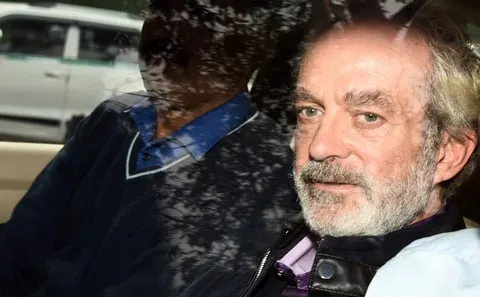In a crucial decision, the Supreme Court, on Monday (March 18), declined to intervene in a Petition under Article 32 filed by British Arms Consultant Mr. Christian James Michel, seeking bail in connection to the Augusta Westland Chopper Scam. The bench led by CJI DY Chandrachud, alongside Justices JB Pardiwala and Manoj Misra, dismissed the petition, emphasizing that the doctrine of speciality had been adequately addressed in the previous court order.
Mr. Michel faces allegations of money laundering, collusion, fraud, misappropriation, and bribery related to the VVIP Scam. Despite Advocate Aljo Joseph’s reliance on Section 21 of the Indian Extradition Act 1962 to invoke the doctrine of speciality, the Court reiterated that this argument had been previously considered and dismissed.
The doctrine of Speciality, recognized in international law, restricts the extraditing country (India) from prosecuting or punishing the extradited individual beyond the terms agreed upon in the extradition decree. Referring to Article 17 of the Extradition Treaty between India and UAE, the Court highlighted that Michel could only be prosecuted for offenses specified in the treaty or connected therewith.
Michel’s arrest in December 2018 followed his extradition from Dubai, where he is labeled as a ‘Middleman’ in the alleged illegal transactions of the VVIP chopper scam. The Central Bureau of Investigation (CBI) estimates a financial loss of approximately Euro 398.21 million (roughly 2666 Crore) from the VVIP helicopter procurement contract signed in February 2010.
Additionally, the Enforcement Directorate (ED) charged Michel in June 2016, alleging he received EUR 30 million (approximately Rs 225 crore) from AgustaWestland. Despite Michel’s argument regarding the completion of the maximum sentence, the court rejected his bail plea, citing the invocation of Section 467 of the IPC by the CBI through a supplementary chargesheet, which mandates life imprisonment.
The Supreme Court’s decision reaffirms the principles of international law and extradition treaties, ensuring adherence to legal frameworks governing cross-border criminal proceedings.






